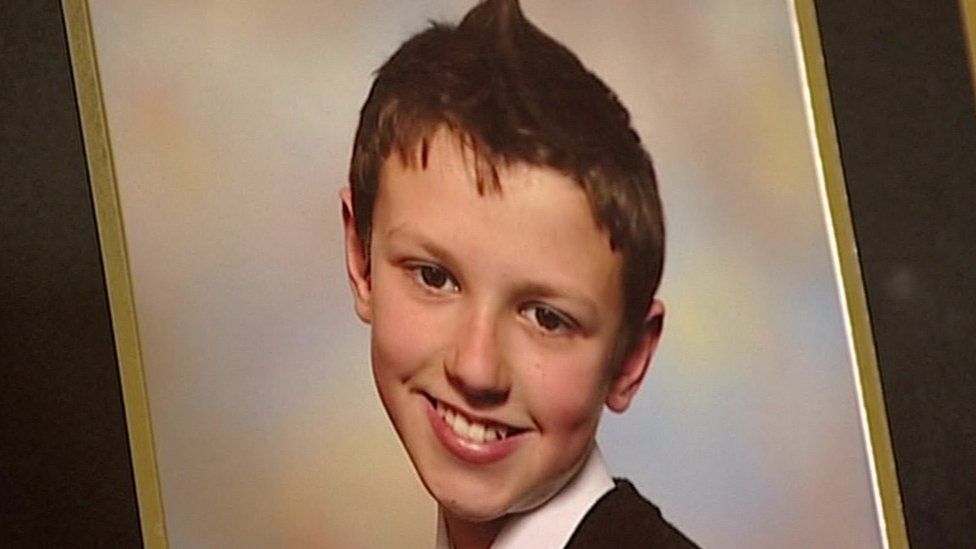MP calls for law forcing schools to have defibrillators
- Published

An MP has called for a law forcing schools to have defibrillators to save people who have cardiac arrests.
Lewes MP Maria Caulfield said survival rates were "dismal" outside hospital as she proposed a bill in Parliament.
A petition for defibrillators in all schools drew 110,000 signatures after Liverpool schoolboy Oliver King suffered a cardiac arrest in 2011.
MPs were told that 30,000 heart attacks occur outside hospital every year, but fewer than one in ten victims survive.
Oliver King, 12, died after his heart stopped during a school swimming lesson at the city's King David High School.
"He died when no defibrillator was available and when paramedics took 24 minutes to get to the scene," said Ms Caulfield.
Campaigners say every year an average of 270 children die at school from Sudden Arrhythmic Death Syndrome - the condition that led to Oliver's death.
In 2013, The Oliver King Foundation helped secure a change in government policy where all schools are recommended - but not obliged - to purchase a defibrillator.
'Over the moon'
Ms Caulfield warned there was a "postcode lottery" in current provision and demanded every community be given the kit and training in how to use it.
Her Defibrillators (Availability) Bill would require all schools, sports centres and other public facilities to have a defibrillator and train staff to use it.
After the motion was passed in the House of Commons on Tuesday, Mr King said he was "over the moon".
"It's mixed emotions because nothing that happens will bring my Olly back but we can stop it happening to other families.
"It's taken five years' hard work... but the real work starts today."
Catherine Kelly from the British Heart Foundation, called on all secondary schools to create "a nation of lifesavers by applying for our free CPR training and defibrillator awareness package".
"This will give young people the confidence to step in and try to save a life when they are faced with the ultimate medical emergency of a cardiac arrest."
The bill is due to be debated in the Commons on 27 January next year, but it is unlikely to proceed without government support.
What is a defibrillator?
- It is a device that gives a high energy electric shock to the heart through the chest wall to someone who is in cardiac arrest
- If you come across someone who has had a cardiac arrest, it's vital to call 999 and start CPR - then you should find out if there is a defibrillator nearby.
- Many are available in public places such as train stations, shopping centres, airport and leisure centres and anyone can use them in an emergency
- In 2014, former footballer Fabrice Muamba, who had a cardiac arrest on the pitch in 2012, launched a campaign to get more defibrillators in public places
Source: British Heart Foundation
- Published22 November 2012
- Published18 October 2012
- Published5 September 2012
- Published9 February 2012